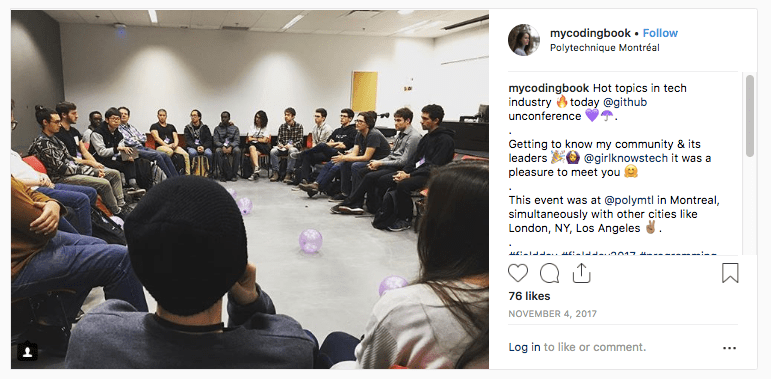Five GitHub Field Day organizers share their playbooks for successful events
Student organizers celebrate one year of great events, globally.
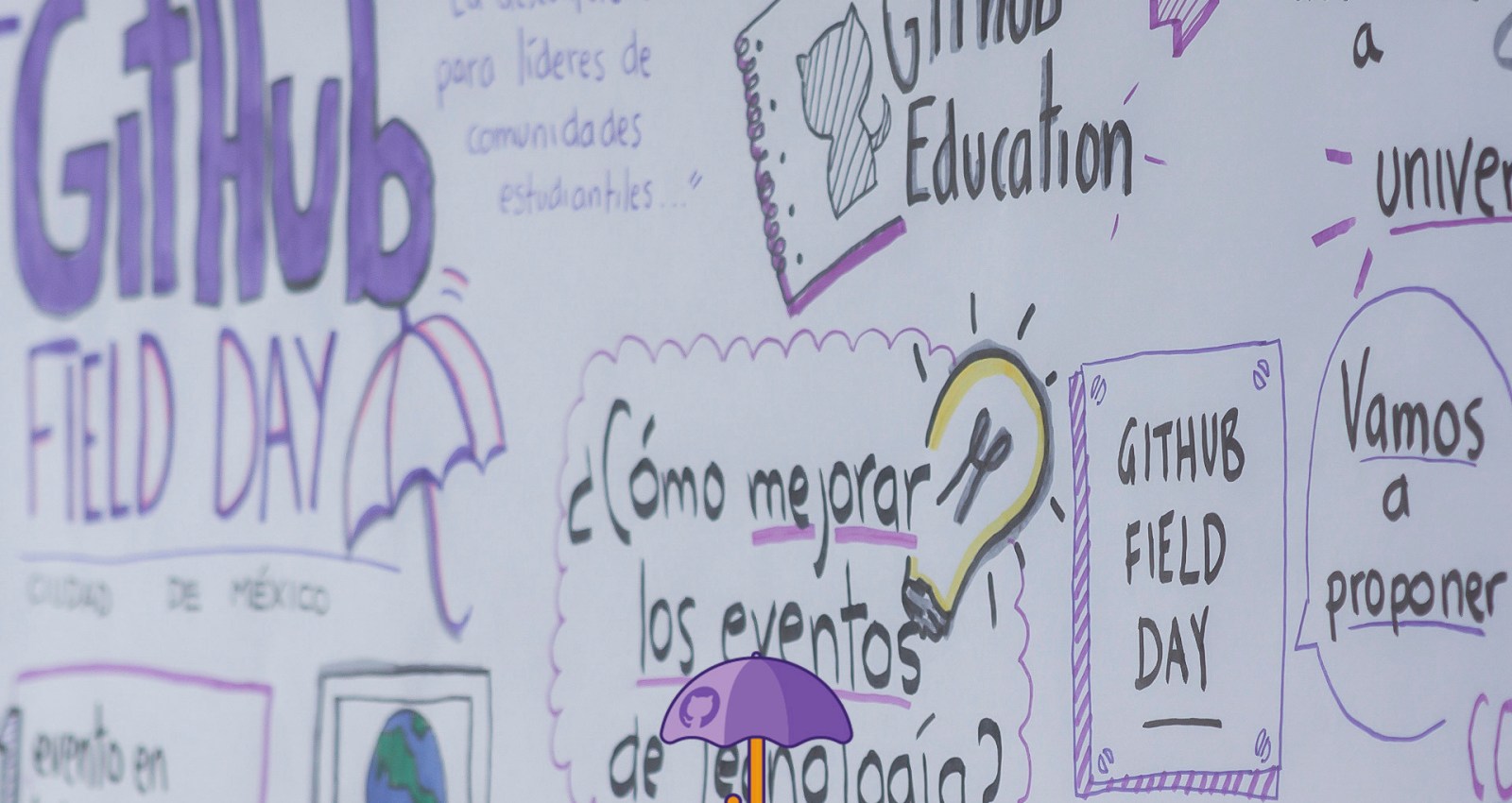
As a student trying to ship code without a community to help you, small setbacks can add up to a massive feeling of frustration, even isolation. Who can you brainstorm with? What about sharing the brilliant solution you devised, 10 pull requests later? As rewarding as contributing to open source can be, it’s also a challenge to go it alone.
GitHub Field Day, a day-long “unconference”, solves this problem by bringing together students from their local communities to connect and share experiences. This summer marked the first anniversary of GitHub Field Day, which has grown to meet the needs of communities around the world.
Gathering to solve a shared struggle
Intern (and now GitHubber) Wilhelm Klopp (Wil) created Field Day to share information across campuses and learn from mistakes, all while making friends. With an unconference, participants in each session can freely engage in discussions, collaborate, take a break, or decide to move to other sessions.
When you attend a local Field Day, the structure of the event invites you to participate as little (or as much!) as you’d like. Think of it like a “choose your own adventure” game—you control your experience, and you can suggest topics for technical discussions and activities that are timely and relevant to you. More importantly, you’ll have fun, feel welcome, and enjoy meeting other student leaders.
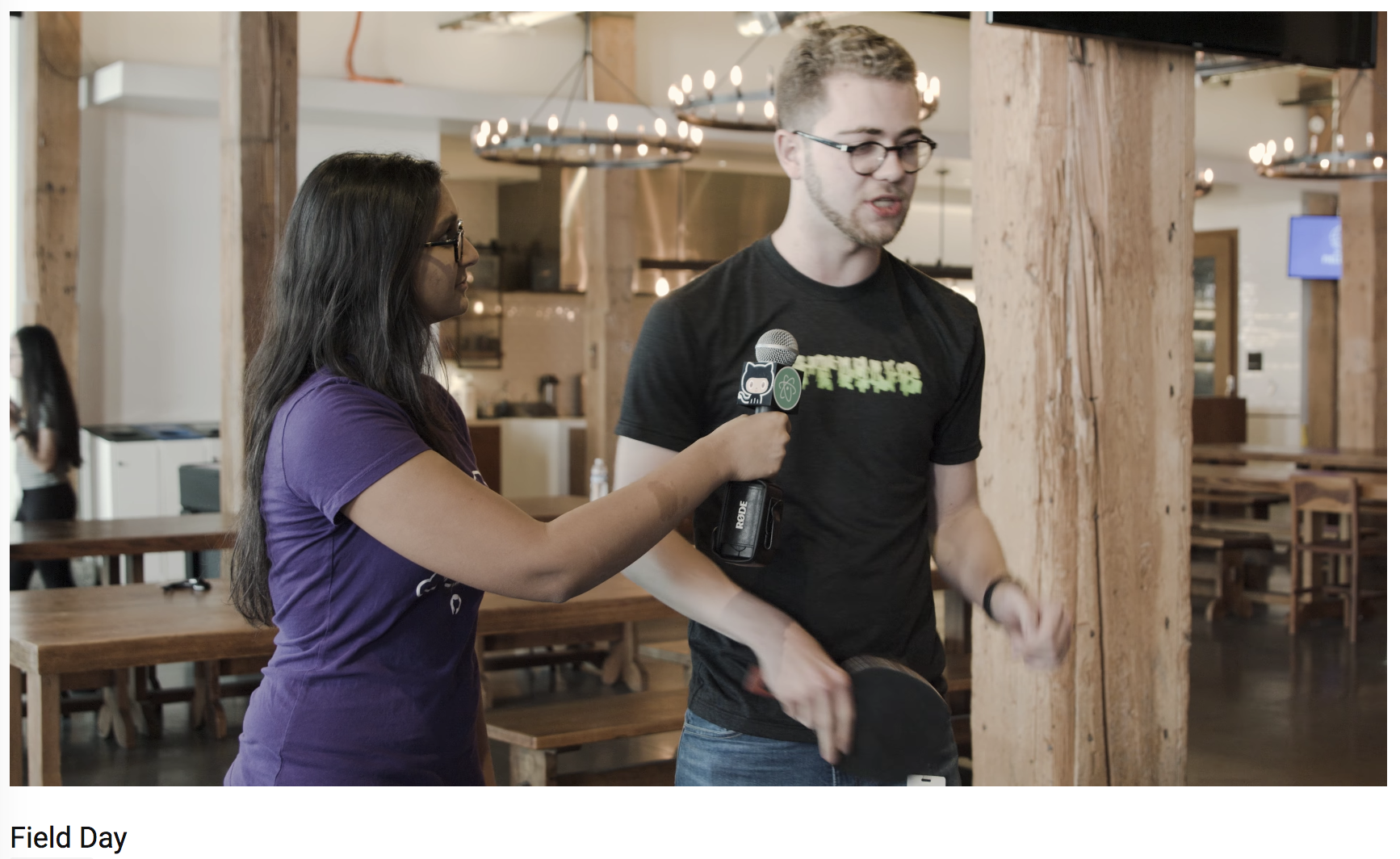 Student leaders talk about Field Day
Student leaders talk about Field Day
Snapshots from Field Day around the world
Every Field Day is different, and each one has something for us to take away to our local communities. Here’s a walkthrough to give you a sense of Field Days from each region, along with some helpful tips.
Field Day 1.0 at GitHub HQ
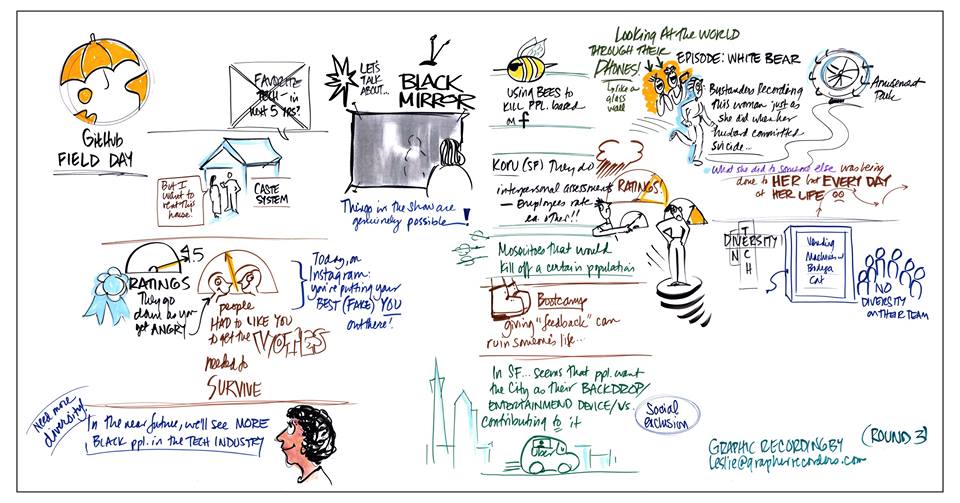
As a Campus Expert Wil noticed a trend that every Expert reported: when a student leader experienced a problem, who did they turn to? There wasn’t an outlet for them in their local communities. This was how the idea for Field Day started, and Wil set out to launch a beta event.
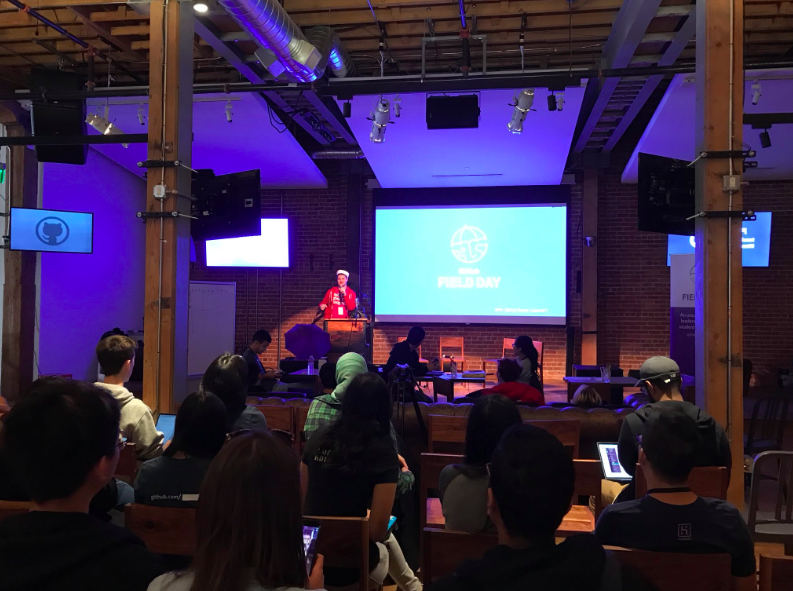 Inaugural Field Day
Inaugural Field Day
One of the key skills you learn as a Campus Expert is how to observe the needs of your community. The first Field Day showed that Wil was onto something—students want this kind of knowledge base, some form of face-to-face support for their shared struggle.
At the time, Field Day’s project name was “Umbrella”—an umbrella event for leaders of technical student communities. Ultimately the name evolved, but the project name still hangs on as part of the branding: the purple umbrella ☔.
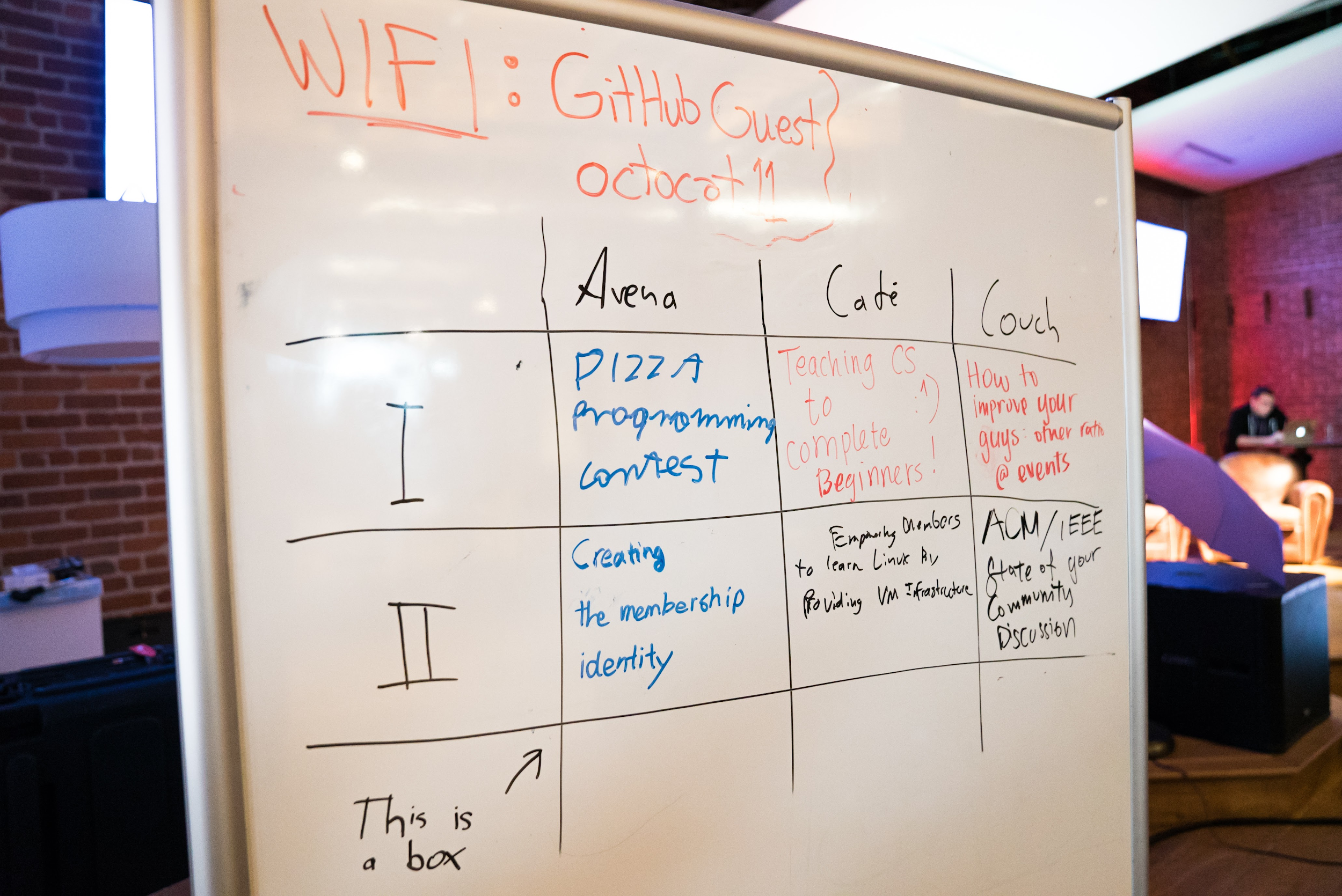 The first Field Day unconference schedule included a Pizza programming contest, teaching CS to complete beginners, creating the membership identity, inclusivity of international students, and building an API for students at university
The first Field Day unconference schedule included a Pizza programming contest, teaching CS to complete beginners, creating the membership identity, inclusivity of international students, and building an API for students at university
Takeaways:
- Reflect about what worked and didn’t work so you have a roadmap to work from for future events.
- Take note of trends you see across proposed talks—they might be signs of what’s missing in your community.
Field Day in Los Angeles, CA
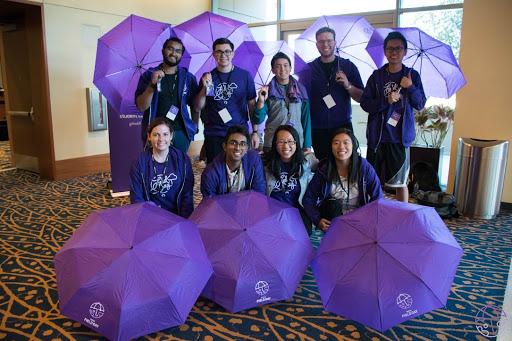
Los Angeles Field Day attendees
Campus Expert Catherine Chung at the University of Southern California has a habit of noticing “what’s missing” in her on-campus community. After joining the ACM chapter, and creating an all-female hackathon for schools in her region, AthenaHacks, she saw how schools in Los Angeles could band together, share resources and distribute the work in ways that would help everyone.
In the spirit of coming together for mutual benefit, Catherine connected USC with UCLA to house Field Day Los Angeles in a larger venue. Working side-by-side to plan the event, both schools shaped it to serve their communities.
For next time, Catherine plans to seed the event with content that students want.
Something that could help add more value to the event is polling the attendees (maybe during the application form) to see what topics or issues they’d like to talk about, or pairing people up into more relevant groups for lunch. For example, it would have been interesting to pair up the ACM (Association for Computing Machinery) student leaders from all the schools in one lunch table so they could talk about collaboration or discuss things they’re working on.
Takeaways:
- Help your community grow: 100 percent get connections from other schools to help with planning and outreach!
- Tinker with the format: The first Field Day in SF was hosted from 8 am to 6:45 pm, which was a little long for college students to commit to during the school semester. Catherine changed LA’s event to be from 10:00 am to 4:00 pm instead.
- Feel free to add a little more structure to the event: Catherine was unsure if people would be proactive and suggest discussion topics at the beginning of the event, so she planned a few topics beforehand. This allowed people to create and rehearse presentations prior to the event, which seemed to be pretty helpful for talks like open source and cryptocurrency.
Field Day in Montreal
With 33 attendees, Field Day Montreal (organized by Campus Expert and former Intern kim-codes) was small enough to focus on one track for the entire day.
Student leaders opened up about their common problems: recruiting new members, the onboarding process for their organization, keeping in touch with members, and learning how to work as a team. With this agenda in mind, the discussion bloomed to offer solutions (including a poutine day for recruitment).
One interesting challenge Field Day Montreal posed was around language: how do you run a conference for student leaders in multiple languages? Perhaps offer slides in English and French, or ask for translation services from student leaders who are multilingual.
Takeaways
- If you have trouble recruiting new members: use the school’s Association or Club Days. These are great in helping to inform new students about your event. You can also stream sessions with Twitch so that people who are unable to attend can catch up.
- To train and retain members: try offering small projects/homework, and be clear about membership expectations and requirements.
- Learn how to teach people to work as a team: no one learns or works the same way. Hold a scrum meetings, or change up the executive teams based on particular projects. Don’t forget to plan a team outing with your members to foster team spirit.
- Don’t forget to keep in touch: make videos, use Facebook, or even ship a newsletter.
Field Day in Mexico City
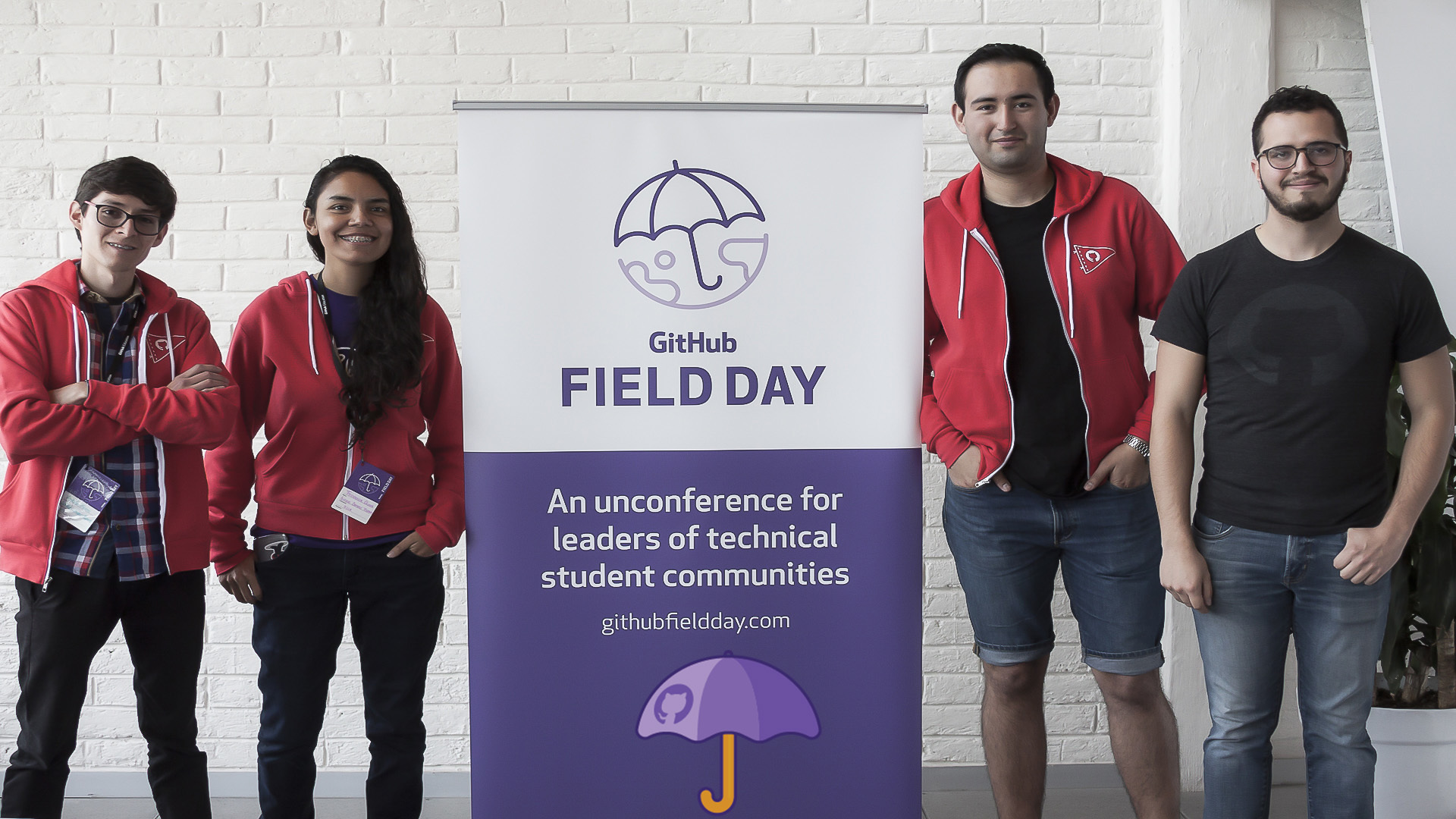 Speakers at Field Day in Mexico
Speakers at Field Day in Mexico
Two of the seven Campus Experts in Mexico, Juan Pablo Flores and Fernanda Ochoa Ramirez, organized Field Day Mexico City in February 2018 for both newcomers and seasoned coders.
For Fernanda, organizing Field Day “changed my life”—she saw ways to improve efficiency, use new communication channels, and bring together 35-50 different communities who previously operated independently. The different clubs shared how to work with universities, sponsors, and the media.
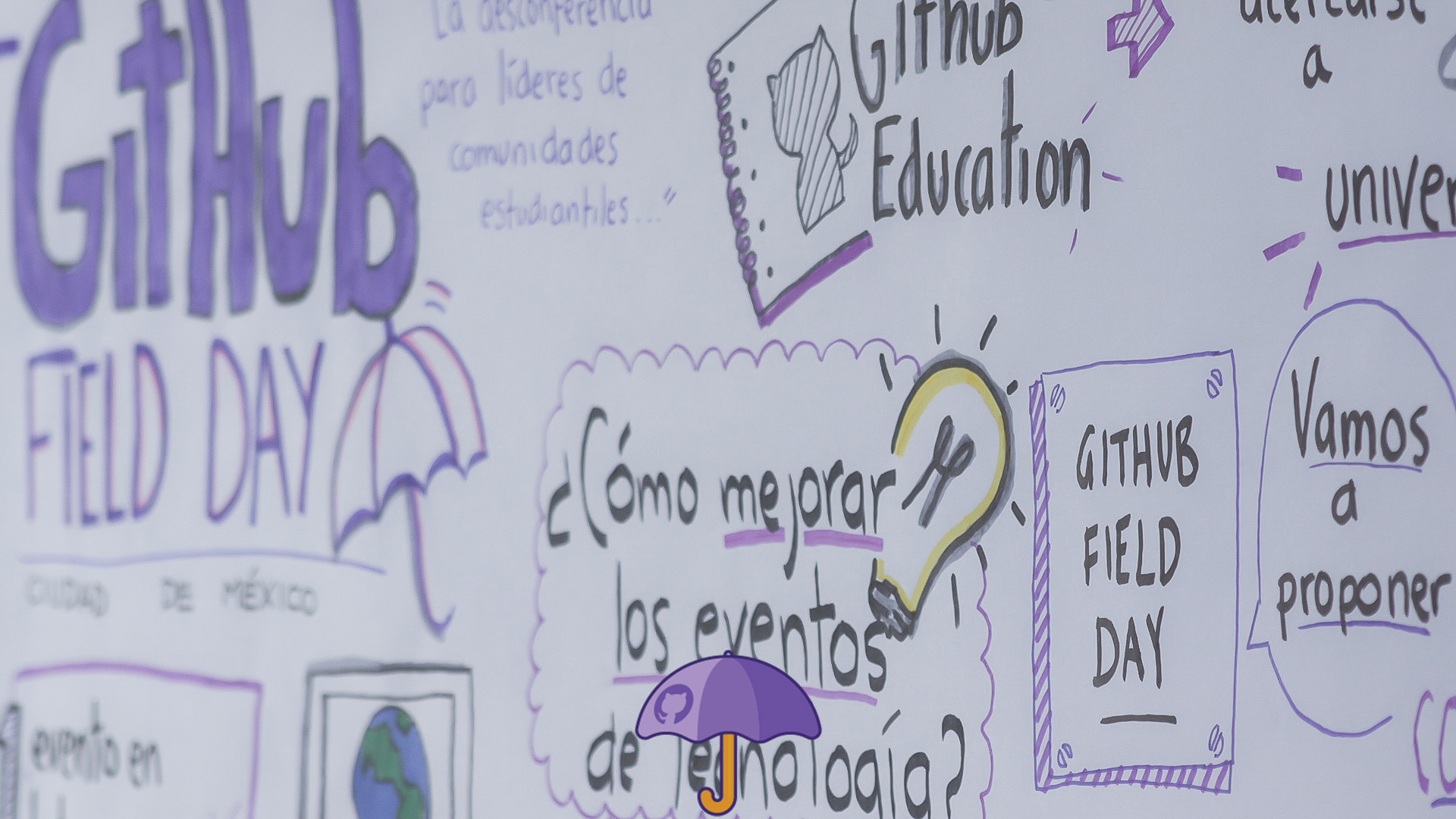
They are currently discussing where to host the next Field Day, and Juan would like to nurture communities outside of Mexico City to grow the ecosystem.
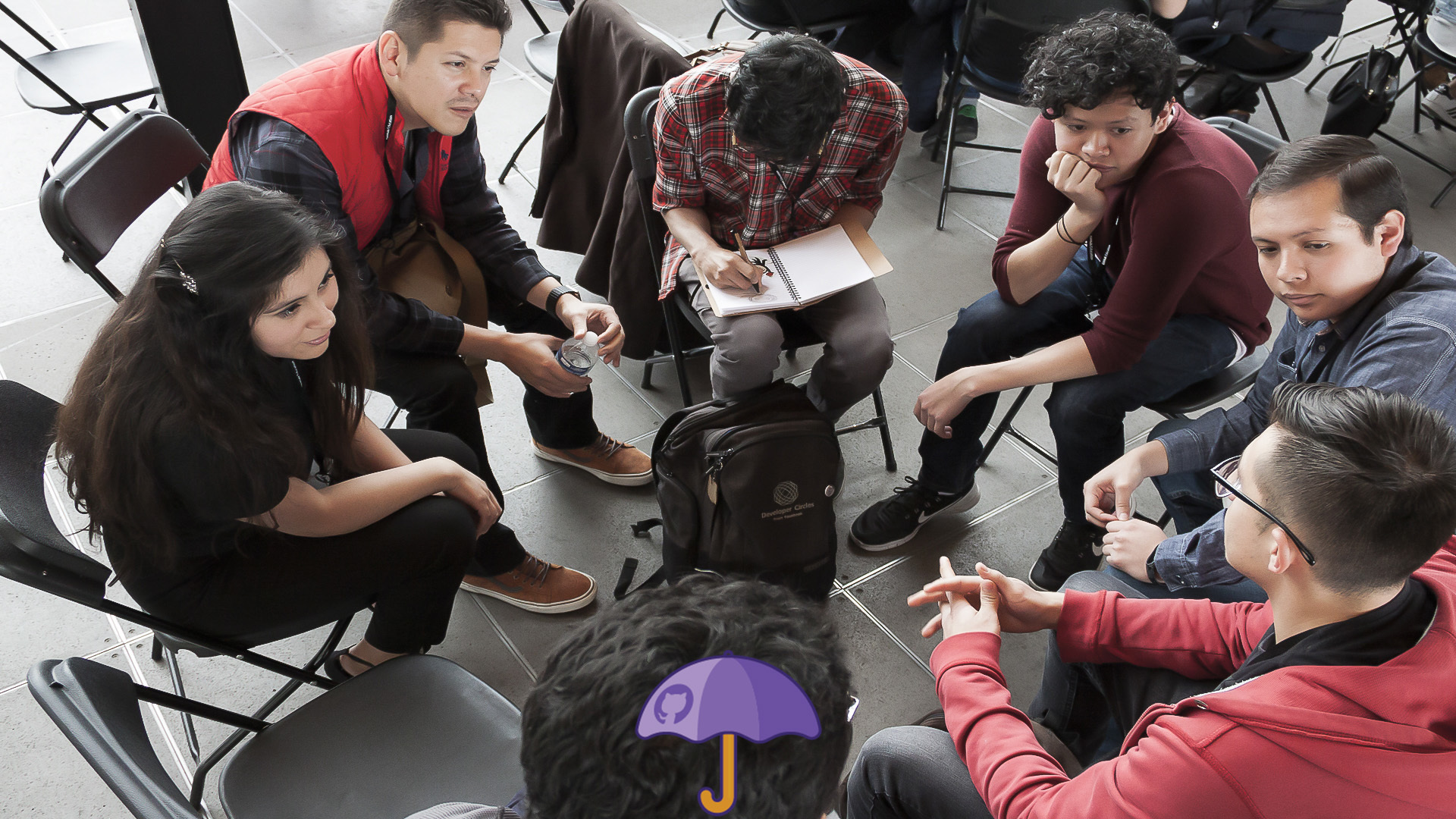
Takeaways
- Share your pain points: With dozens of groups represented, there is a ton of expertise to draw from.
- Identify how you can make Field Day a consistent feeling: Juan and other experts are even considering doing a meetup every two to three months to follow up on events people are doing.
- Look beyond startups and apps: you’re more likely to see problems the community can solve. Juan is looking to diversify their events and bring real problems to solve, such as hackathons on Agrotech.
Field Day in New York City

Campus Expert Teresa Luz Miller held Field Day NYC at the offices of Major League Hacking (dubbed “MLHQ”) in Manhattan.
The NYC Field Day started with a kickoff icebreaker activity called “A Cold Wind Blows”, which is a sort of musical chairs game to help people get to know each other. The organizer structured the unconference by asking every attendee to make three post-it notes of what they needed help with—an idea she learned from Maintainerati, the unconference for open source maintainers—and then clustered related ideas together into a schedule. Each small breakout group appointed a facilitator to capture the conversation on the whiteboard, which aided in comprehension and collaboration.
Takeaways:
- Use the whiteboard: Highlight best concepts while making it bite-sized and aesthetically pleasing.
- Be flexible with the schedule: The more interactive an event is, the more energy it requires. Like Los Angeles, NYC also ended early because of the (wonderful) intensity of the event.
Help for your student community
GitHub Field Day has connected students from as far as London and the Midlands in the UK to Mexico City. We would love for you to join us at the next Field Day near you!
Are you a technical student leader in your community?
Find a GitHub Field Day or contact your local Campus Expert.
Written by
Related posts

GitHub Availability Report: June 2025
In June, we experienced three incidents that resulted in degraded performance across GitHub services.

From pair to peer programmer: Our vision for agentic workflows in GitHub Copilot
AI agents in GitHub Copilot don’t just assist developers but actively solve problems through multi-step reasoning and execution. Here’s what that means.

GitHub Availability Report: May 2025
In May, we experienced three incidents that resulted in degraded performance across GitHub services.
